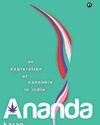SWARNA RAJAGOPALAN is a political scientist and independent scholar. She is also the founder of The Prajnya Trust in Chennai, which works towards gender equality.

Most infuriating because it demonstrates clearly that no effort has been made to identify, contact and include the countless women who make schools, colleges, residents’ welfare associations, mohalla committees, consumer action groups and other collective or social activities run smoothly. Their work underpins a host of social goals from education to public health to alleviating the consequences of social inequality but, leave alone acknowledged, it is not seen.
To this end, feminists set about making women’s work visible in many ways. We write histories that uncover their work in areas as varied as science and diplomacy, for instance. We gather their writings and publish them. We recognize their contribution through special awards. We challenge their absence from important contexts like cabinets, boardrooms and judicial benches.
The NGO I run has an archives project, which crowd sources images from women’s personal collections to document the invisible work women do in the public sphere. We are particularly interested in the women who form the crowd (for instance, those who march in protests) or work in the back rooms, providing support (those who paint the banners). For us, it is evident these constitute both experience and leadership. In 2015 and 2016, we ran two calls for photos, both of which called on women to identify each other or better, self-identify as leaders. The response was pitiful.
This story is from the June 2018 edition of Reader's Digest India.
Start your 7-day Magzter GOLD free trial to access thousands of curated premium stories, and 9,000+ magazines and newspapers.
Already a subscriber ? Sign In
This story is from the June 2018 edition of Reader's Digest India.
Start your 7-day Magzter GOLD free trial to access thousands of curated premium stories, and 9,000+ magazines and newspapers.
Already a subscriber? Sign In

ME & MY SHELF
Siddharth Kapila is a lawyer turned writer whose writing has focussed on issues surrounding Hinduism. His debut book, Tripping Down the Ganga: A Son's Exploration of Faith (Speaking Tiger) traces his seven-year-long journey along India's holiest river and his explorations into the nature of faith among believers and skeptics alike.

EMBEDDED FROM NPR
For all its flaws and shortcomings, some of which have come under the spotlight in recent years, NPR makes some of the best hardcore journalistic podcasts ever.

ANURAG MINUS VERMA PODCAST
Interview podcasts live and die not just on the strengths of the interviewer but also the range of participating guests.

WE'RE NOT KIDDING WITH MEHDI & FRIENDS
Since his exit from MSNBC, star anchor and journalist Mehdi Hasan has gone on to found Zeteo, an all-new media startup focussing on both news and analysis.

Ananda: An Exploration of Cannabis in India by Karan Madhok (Aleph)
Karan Madhok's Ananda is a lively, three-dimensional exploration of India's past and present relationship with cannabis.

I'll Have it Here: Poems by Jeet Thayil, (Fourth Estate)
For over three decades now, Jeet Thayil has been one of India's pre-eminent Englishlanguage poets.

Orbital by Samantha Harvey (Penguin Random House India)
Samantha Harvey became the latest winner of the Booker Prize last month for Orbital, a short, sharp shock of a novel about a group of astronauts aboard the International Space Station for a long-term mission.

She Defied All the Odds
When doctors told the McCoombes that spina bifida would severely limit their daughter's life, they refused to listen. So did the little girl

DO YOU DARE?
Two Danish businesswomen want us to start eating insects. It's good for the environment, but can consumers get over the yuck factor?

Searching for Santa Claus
Santa lives at the North Pole, right? Don't say that to the people of Rovaniemi in northern Finland